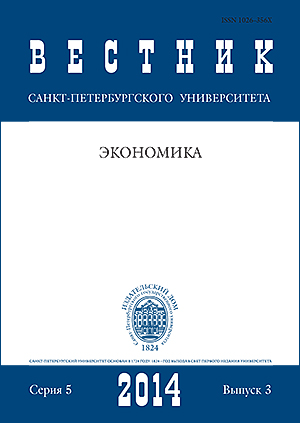Origins and Consequences of “Technological Stagnation” of the Global Economy
Abstract
The article shows the relationship between technological stagnation and crisis features in development of the modern world economy. Special attention is paid to fi nding the roots of innovation pause. The analysis has shown that technological stagnation was caused by conjunction of a number of global economic circumstances, together discouraged technological progress. The leading factor was the integration of emerging markets with huge labour surpluses into the world economy that triggered decline of capital abundance. As a result, global business refocused innovation process to incremental innovations unable to provide population incomes and productivity growth. Deindustrialization of developed countries and erosion of welfare states caused by transition to fi nancial model of economic development are attributed as the most important eff ects of innovation pause. It was proved that the strong rooting of “planned obsolescence” paradigm and “microwave mentality” phenomenon are consequences of tightening innovation pause. Refs 115.
Keywords:
welfare state, deindustrialization, planned obsolescence, technological deadlock, financialization
Downloads
References
References in Latin Alphabet
Rector R. The Fiscal Cost of Low-Skill Immigrants to State and Local Taxpayers. Washington: The Heritage Foundation, 2007.
Translation of references in Russian into English
Downloads
Published
How to Cite
Issue
Section
License
Articles of the St Petersburg University Journal of Economic Studies are open access distributed under the terms of the License Agreement with Saint Petersburg State University, which permits to the authors unrestricted distribution and self-archiving free of charge.






